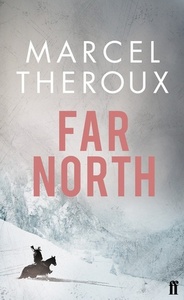Take a photo of a barcode or cover
Definitely not a feel good book, but it is well written and an interesting story.
Among the saddest dystopian novels . . . If you find the start / middle slow, try to get to p. 235.
I loved this book. Makepeace is exactly the type of person you would want to have by your side should the world go to shit and you're left to fend for yourself and fight for your survival. This book gets straight to the point, there's no real wishy washy overly 'girly' stuff going on here (even though the cover of the copy I have gave me the impression that it might go a bit that way). Don't get me wrong, it does have some heartfelt and sad moments, but overall it hits hard and stays that way the whole way through. I bought this book for $2.95 or some ridiculously low price like that from booktopia and I'm almost offended that they are selling it so cheap-that's how much I like this book. If you liked The Road by Cormac McCarthy then I'm sure you will enjoy this too.
"Theroux guides Makepeace’s journey with a steady hand, slowly revealing both the state of humankind and Makepeace’s surprising nature with a deliberate, unforced caution. While lacking the stark, hypnotic beauty of McCarthy’s prose, Theroux is an able craftsman, and Far North engages in its depiction of mankind’s survivors kept cowed and under thumb through “the patterns of older gods…terror and mercy, like twin shadows of an old totem that gets fed with blood.”
"However, a marked lack of urgency drastically hampers Theroux’s imaginings. Makepeace’s world may be winding down, but this ramping inertia unfortunately transfers to the story, resulting in scenes that feel stale where they should excite."
Read the full review here.
"However, a marked lack of urgency drastically hampers Theroux’s imaginings. Makepeace’s world may be winding down, but this ramping inertia unfortunately transfers to the story, resulting in scenes that feel stale where they should excite."
Read the full review here.
Really well written, really nicely paced, and a couple of really unexpected turns made this hard to put down. I read it quickly in long sessions, which is always a good sign. Enjoyable example of soft/social sci fi.
Makepeace lives in Siberia, the last bastion of the earth. After catastrophic events that led many to flee to the Far North, Makepeace may now be the one of the last of mankind. Against this harsh backdrop, Makepeace works mainly on survival, hunting and growing food, and also saves books from being burned as fuel, hopefully for a future where books have meaning again. This novel is brutal, haunting, and dark. Makepeace overcomes again and again, but how much can one person take?
Because of the way publishing in the West has historically worked, I, like everyone else, end up reading a lot of books written by white men. Which is generally agreed to be a problem, because why should they be the lion's share of publishing when they are not the lion's share of the Earth's population? Which is also something to be discussed in a separate review.
I've also liked quite a lot of books by white men, which is because of this fact: there are books written by white men and there are books written by White Men.
Books of the first category are deemed good or bad by readers based on whether or not the particular white man who wrote it has any actual ability to write, can create a coherent plot and write well-developed characters you might actually want to read about. If he can't, then of course you run into questions of why his book got published instead of a well-deserving woman or ENBY author, or an author of color. But it's not out of the realm of possibility that a white man might actually just write a good book.
Books of the second category though, are usually deemed bad because what's wrong with them is that the entire book is hindered from being written from a White Male perspective, with all the baggage that comes with that perspective. And regardless of how well White Men like this write, or how coherent their plot is, the entire book is ruined because of it.
This book was unquestionably of the second category. Dystopian books like this tend to run along the same course and judging one really depends on how well the author hits the usual notes - is the ruin of the world evocative? Are the characters realistic for the setting? Is the backstory of how the world got this way explained well (in literary dystopias like this one, that can be sacrificed in favor of the writing style). I can't say that Theroux didn't hit these notes - the plot was fine for what it was, if a little repetitive, but so is The Walking Dead, the main character was well developed, the setting was very well evoked, the writing was sufficiently literary to make everyone compare this to [b:The Road|6288|The Road|Cormac McCarthy|https://images.gr-assets.com/books/1439197219s/6288.jpg|3355573].
But SERIOUSLY. Women do not spend half their lives thinking about how they are women the way this character does. We do not preface every thought with how we're thinking it as a woman, doing things as a woman. My favorite line in the book was "I started to feel some hooey. I am a woman after all."
NO ONE THINKS LIKE THIS.
NO ONE EVER.
I can tell you exactly what I'd be thinking in a post-apocalyptic scenario, and it's exactly the same as men would be thinking (how to get food, how to build shelter, how to defend myself, wasn't electricity great?) with some extra care on the defense side because we all know how men are at the best of times and the addition of a massive amount of complaining once a month because life was definitely easier when feminine hygiene products were readily available.
Definitely a master class in my favorite literary pastime: watching men write women hilariously badly.
I've also liked quite a lot of books by white men, which is because of this fact: there are books written by white men and there are books written by White Men.
Books of the first category are deemed good or bad by readers based on whether or not the particular white man who wrote it has any actual ability to write, can create a coherent plot and write well-developed characters you might actually want to read about. If he can't, then of course you run into questions of why his book got published instead of a well-deserving woman or ENBY author, or an author of color. But it's not out of the realm of possibility that a white man might actually just write a good book.
Books of the second category though, are usually deemed bad because what's wrong with them is that the entire book is hindered from being written from a White Male perspective, with all the baggage that comes with that perspective. And regardless of how well White Men like this write, or how coherent their plot is, the entire book is ruined because of it.
This book was unquestionably of the second category. Dystopian books like this tend to run along the same course and judging one really depends on how well the author hits the usual notes - is the ruin of the world evocative? Are the characters realistic for the setting? Is the backstory of how the world got this way explained well (in literary dystopias like this one, that can be sacrificed in favor of the writing style). I can't say that Theroux didn't hit these notes - the plot was fine for what it was, if a little repetitive, but so is The Walking Dead, the main character was well developed, the setting was very well evoked, the writing was sufficiently literary to make everyone compare this to [b:The Road|6288|The Road|Cormac McCarthy|https://images.gr-assets.com/books/1439197219s/6288.jpg|3355573].
But SERIOUSLY. Women do not spend half their lives thinking about how they are women the way this character does. We do not preface every thought with how we're thinking it as a woman, doing things as a woman. My favorite line in the book was "I started to feel some hooey. I am a woman after all."
NO ONE THINKS LIKE THIS.
NO ONE EVER.
I can tell you exactly what I'd be thinking in a post-apocalyptic scenario, and it's exactly the same as men would be thinking (how to get food, how to build shelter, how to defend myself, wasn't electricity great?) with some extra care on the defense side because we all know how men are at the best of times and the addition of a massive amount of complaining once a month because life was definitely easier when feminine hygiene products were readily available.
Definitely a master class in my favorite literary pastime: watching men write women hilariously badly.
A post-apocalyptic novel along the lines of THE ROAD except with a more compelling character and a more interesting intersection between the novel’s backstory (the main character is the descendant of a back to the land commune in Siberia) and the ultimate quest the character goes on. However, be warned. It is full of the usual horror and misery of most apocalyptic novels




